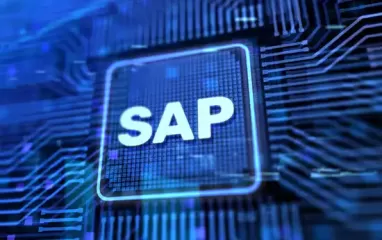Other recent blogs



Let's talk
Reach out, we'd love to hear from you!
Pretty Good Privacy (PGP) is a robust data encryption and decryption program used to secure a company’s sensitive data transmitted across the internet. Security experts use the module or technology to protect all their data and digital transmissions from data breaches and unauthorized access.
The cryptographic algorithm within the PGP module ensures the security of sensitive information during electronic data transmission, rendering it inaccessible to unauthorized individuals, even when traversing unsecured networks. In the SAP Process Integration (PI) environment, the PGP module functionality is carried out within the SAP Process Integration environment, enabling the encryption, digital signing, and compression of messages.
The PGP module employs the public key encryption method to fortify the contents of business documents. This method comprises two distinct sets of keys: one is a public key, and one is a private key, each serving a distinct purpose:
- Public Key: This key is shared with partners to facilitate the encryption of messages intended for the user and the decryption of the user's digital signature.
- Private Key: The user employs the private key for encrypting digital signatures and decrypting received messages.
7 key advantages of using the pretty good privacy (PGP) model in SAP
%20model%20in%20SAP.webp)
SAP PI/PO provides out-of-the-box functionality via Adapter Modules to support PGP— utilized to encrypt or decrypt data as well as sign it. Public keys (safe to share) are used to encrypt messages, while private keys (must not be shared) are used to decrypt the messages.

1. PGPEncryption module
The PGPEncryption Module functions as the originator of PGP messages. It is used for the following activities:
- Data Encryption
- Payload Signature
- Data Compression
The PGPEncryption module is configured under the ‘modules’ tab in the receiver communication channel. It can be used in every communication channel that supports enhancement via modules (e.g. File, SFTP, JMS, SOAP, etc.)

Options for PGP encryption
| Parameter Name | Description |
| applyEncryption | Set to true if you want to encrypt the outgoing message |
| applySignature | Set to true if you want to sign the outgoing message |
| applyCompression | Set to true if you want to compress the outgoing message |
| encryptionAlgo | Specify the algorithm to be used for encryption |
| signingAlgo | Specify the algorithm to be used for signature |
| asciiArmored | Set to true if you want the message to be ASCII armored |
| partnerPublicKey | Used to specify the public key of the partner |
| ownPrivateKey | Used to specify your own private key (never share this key with anyone) |
| pwdOwnPrivateKey | Password for your own private key (never share this password with anyone) |
| keyRootPath | Path where PGP keys are stored (if storing keys on PI/PO server) |
| useSecureStorage | Set to true if you want to use PGP keys stored in B2B integration cockpit |
2. PGPDecryption module
The PGPDecryption module functions as the subscriber of PGP messages. It is used for the following tasks:
- Data Decryption
- Signature verification
- Data Decompression
The PGPDecryption module is configured under the ‘modules’ tab in sender communication channel. It can be used in every communication channel that supports enhancement via Modules (e.g. File, SFTP, JMS, SOAP, etc.)

Options for PGPDecryption
| Parameter | Description |
| partnerPublicKey | Used to specify the public key of the partner |
| ownPrivateKey | Used to specify your own private key (never share this key with anyone) |
| pwdOwnPrivateKey | Password for your own private key (never share this password with anyone) |
| keyRootPath | Path where keys are stored (if storing keys on PI/PO server) |
| useSecureStorage | Set to true if you want to use PGP keys stored in B2B integration cockpit |
Managing PGP modules
The PGP Keys (private as well as public) can either be stored in NetWeaver J2EE server's Secure Store or on the file server where PI/PO is installed. Storing keys in secure store provides better and more secure options as compared to the local file server.
1. Secure store of NetWeaver J2EE server (Recommended Approach)
When keys are stored in Secure Store, the encryption and maintenance of keys are done using the B2B Integration Cockpit. It can be accessed via a web browser and provides an excellent user interface to upload/download keys. Currently, you can only import/export PGP keys in Secure Store. It does not provide an option to generate PGP key pairs.
When using this approach, you need to set ‘useSecureStore’ option in the adapter module to ‘true’ to let the system know where the keys are stored.

2. Storing keys on a file server of SAP PI/PO (Not Recommended)
Even though PI/PO allows keys to be stored on the file server, it is not advisable to do so. Using this approach may keep your keys exposed to anyone who has access to the server. Private keys must be stored in a safe location and must not be shared with anyone. Public keys can be freely shared across systems. If you decide to store your keys on the file server, you must set ‘useSecureStore’ to ‘false’ and provide the physical location of the key in the adapter module.
Conclusion
We have talked about SAP PI/PO at great length in this post. To truly elevate your organization’s security posture, you can effectively use the PGP module to achieve increased data integrity, security, and governance. Its ability to seamlessly encrypt, decrypt, and digitally sign data ensures not only its confidentiality but also its integrity, meeting the stringent requirements of today's data compliance standards.
Furthermore, the PGP SAP module's adaptability and scalability make it a versatile solution for organizations of all sizes, allowing them to grow and evolve with confidence. As we navigate an era where data is both a valuable asset and a potential liability, this partnership between PGP and SAP PI becomes a beacon of trust in the digital realm. It empowers businesses to communicate securely with partners, uphold compliance obligations, and ultimately cultivate stronger and more resilient connections within the global landscape of data exchange. In essence, the PGP SAP module is not just a technology; it's the guardian of data integrity and trust in the digital age.
By using SAP PGP Adapter Modules, you can successfully encrypt, decrypt, and sign your data. Most of the industry-standard encryption algorithms are supported and depending upon your licensing agreement with SAP, you may be able to download these modules without any additional costs.



